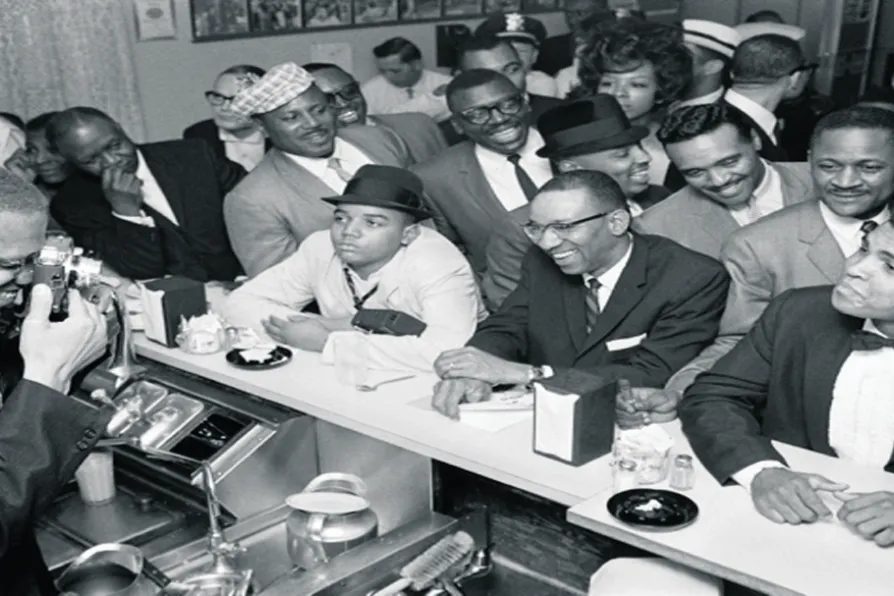
 Malcolm X photographs Muhammad Ali after his defeat of Sonny Liston
[EPHouston/Creative Commons]
Malcolm X photographs Muhammad Ali after his defeat of Sonny Liston
[EPHouston/Creative Commons] With the anniversary of the murder of Malcolm X coming up on February 21, the short-lived and scintillating friendship which the black liberation firebrand – and, later, champion of pan-Africanism –enjoyed with a young and unapologetically black Muhammad Ali in the early 1960s still stands as the most powerful refutation of the mantra that sport and politics should not mix.
Theirs was a friendship between two men who were the living antithesis of Goethe’s admonition that: “None are more hopelessly enslaved than those who falsely believe they are free.” Neither Malcolm nor Ali had any illusions that they or their people were free in America, and both were intent on making sure everybody knew it, no matter the consequences.
While the relationship they enjoyed may have exploded into public consciousness immediately after Ali’s (still then Cassius Clay) stunning victory over Sonny Liston in Miami on February 25 1964, Clay first encountered Malcolm at a Nation of Islam rally in Detroit in June 1962, where he spoke on a platform alongside the organisation’s leader, Elijah Muhammad.

In recently published book Baddest Man, Mark Kriegel revisits the Faustian pact at the heart of Mike Tyson’s rise and the emotional fallout that followed, writes JOHN WIGHT

As we mark the anniversaries of the Hiroshima and Nagasaki bombings, JOHN WIGHT reflects on the enormity of the US decision to drop the atom bombs

From humble beginnings to becoming the undisputed super lightweight champion of the world, Josh Taylor’s career was marked by fire, ferocity, and national pride, writes JOHN WIGHT

Mary Kom’s fists made history in the boxing world. Malak Mesleh’s never got the chance. One story ends in glory, the other in grief — but both highlight the defiance of women who dare to fight, writes JOHN WIGHT














